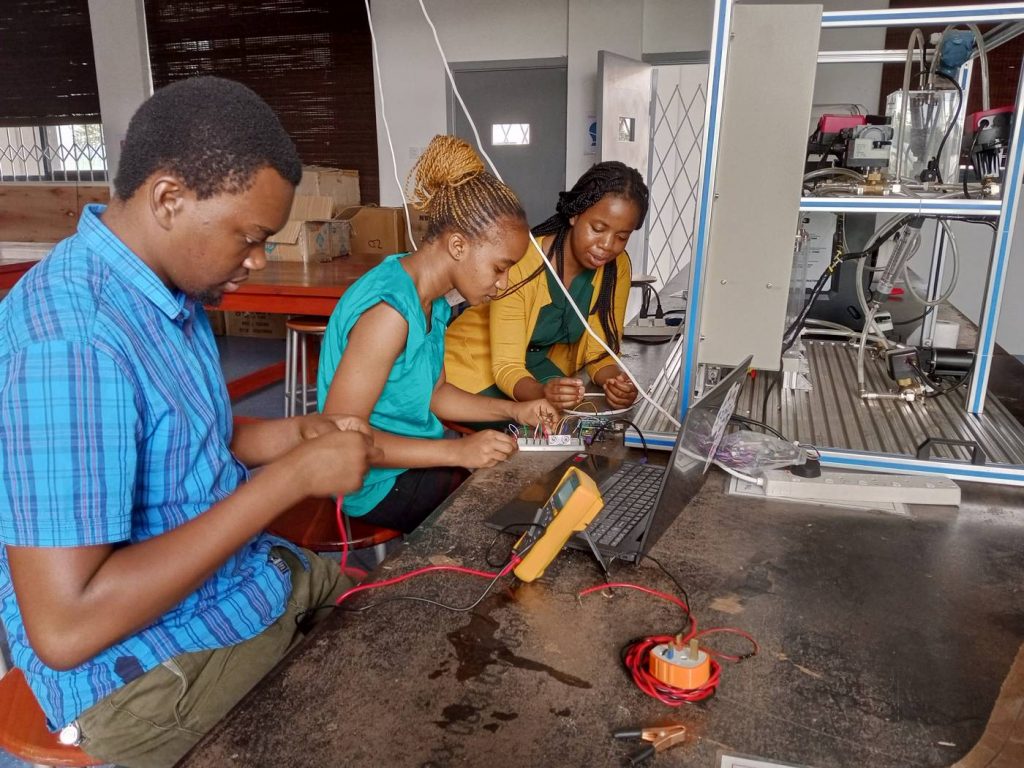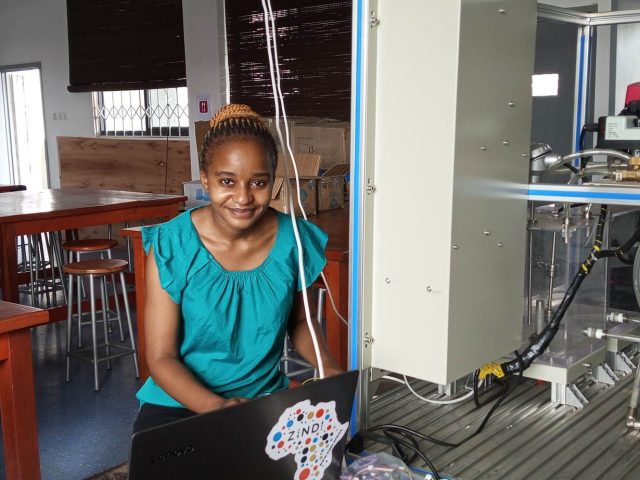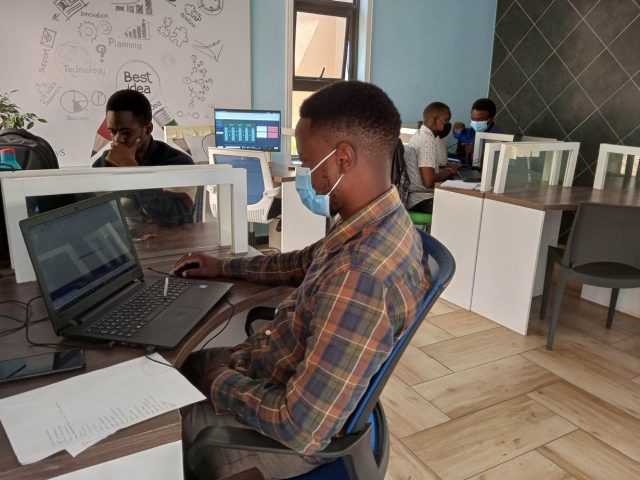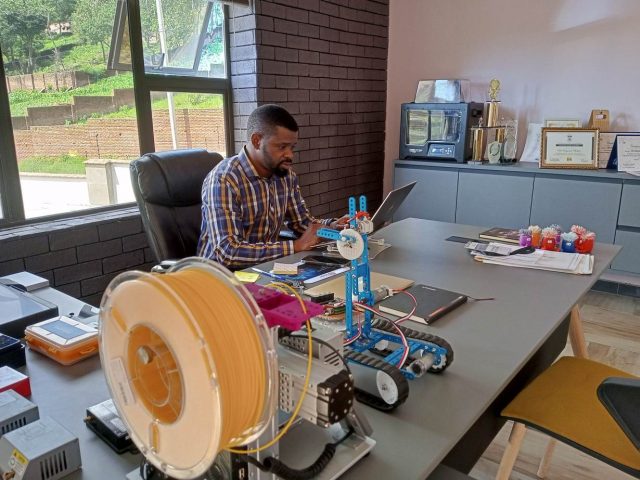AI is disrupting education. But despite what the headlines (and some ChatGPT horror stories) might suggest, South African teachers aren’t being replaced — they’re…
Malawi banks on young tech innovators to trump cheap imports

Malawian engineers and entrepreneurs say competition from China and Japan and a lack of resources are hobbling the country’s tech industry. Innovators struggle to compete against cheaper imports with more than 16% of imports coming from China.
When Malawian engineer Ruth Mtuwa was a child, she visited a sick family member in hospital and was shocked to see that barely any of the medical equipment worked. The Thomson Reuters Foundation reports that this realisation pushed her to want to help, leading her on the path to becoming a biomedical engineer.
Today, the 21-year-old research assistant has managed to bring a number of medical innovations to life – including a low-cost nebuliser and a hypertension tracking device – despite tight funding and crushing foreign competition.
“I thought if we design on our own equipment, it should be easy to fix on our own when it breaks,” said Mtuwa, tweaking wires on a board in a lab in Thyolo, where she works at the Malawi University of Science and Technology (MUST).
“The biggest challenge we face is resources … engineering designs is a repetitive process,” she said, noting that without equipment and funding from MUST, her innovations may never have gotten past the expensive trial and error stage of research.
Mtuwa is one of dozens of young Malawian entrepreneurs who are dedicated to inventing or improving technological products, but many say their ideas are killed by lack of financing and cheaper imports from countries like China and Japan.
To help local tech innovations rise above the flood of foreign competitors, universities, banks and charities are offering resources and mentoring to the country’s young entrepreneurs, from graduates to those with no formal education.
Some of the main obstacles for young innovators are training and financing, said David Mkwambisi, director of MUST’s Institute of Industrial Research and Innovation.
Most don’t know the proper process for taking an idea to the global market, he said, such as the need for patents and copyrights.
“We’ve seen that those who have a unique innovation or idea are going public with it, whether on YouTube or Facebook, which is already a mistake in the innovation landscape,” he said.
Since 2020, MUST has been pairing young Malawian innovators with experts who guide them on how to develop and market their designs to convince customers to skip the imports and buy local, Mkwambisi said.
“Most of the innovations coming from countries like China are just to be used temporarily and don’t support the economy, so we can compete,” he said.

Youth potential
In 2019, Malawi imported about $456 million-worth of goods from China, making up more than 16% of its total imports, according to data from the Observatory of Economic Complexity. Only South Africa sent more into the country that year.
But when Clement Kandodo’s biogas company EcoGen went head-to-head with a foreign competitor last year, the issue wasn’t price – it was reputation.
Kandodo’s startup, which uses biodigesters to convert organic waste into cooking gas and fertiliser, put in a tender to expand its technology at a refugee camp in Malawi where they were already working, only to be beaten out by an Israeli company that had no presence in the country at the time.
The 28-year-old entrepreneur believes that even with EcoGen’s proven track record, the client saw the bigger, richer company as more trustworthy and reliable.
“Local companies can deliver just like our international counterparts, but they need to be empowered with loans and grants for them to achieve this,” Kandodo said over the phone.
EcoGen’s on-the-ground knowledge proved beneficial after all, when Kandodo and his team were asked to join the project and help set up the systems.
Mkwambisi at MUST said the key to competing with outsiders on price and customer confidence lies in Malawi’s young people.
Figures from the Organisation for Economic Co-operation and Development (OECD) show that about one quarter of the country’s population is between 15 and 29 years old.
“The country has huge potential. The majority of people (here) are young and young people keep on thinking and generating new ideas,” Mkwambisi said.
To better tap into that potential, MUST has approached various Malawian financial institutions about creating a venture capital fund to support local innovations, he added.
While discussions are still at the early stage, he said several institutions have shown interest.

The Ministry of Trade and Industry has been working with MUST since last year to promote homegrown research and technology through a 30 million kwacha ($37 300) apprenticeship programme.
“One (focus) is identifying innovators and incubating them so that their products are of good quality and can be produced in large quantities to satisfy customer demands,” said ministry spokesperson Yamikani Kadzakumanja in emailed comments.
The Covid-19 pandemic recently provided the spark for high-quality, scalable, local innovation, Kadzakumanja noted.
He pointed to a project that sees six public universities working with local entrepreneurs, global charities, Malawi’s health ministry and the U.N. Development Programme (UNDP) to develop personal protective equipment to global standards.
UNDP spokesperson Madalitso Mbendera said equipment produced through the initiative has been given to schools, hospitals and the road traffic directorate, all of which would have otherwise used products imported from places like China.
Creating jobs
The struggle to stand out against foreign imports could be good for Malawi’s tech entrepreneurs, encouraging them to use local materials and adopt competitive pricing, said Mayamiko Nkoloma, an inventor and telecommunications lecturer at the University of Malawi.
Nkoloma’s social enterprise iMoSyS is behind various health and telecomms innovations, including a smart water management system that remotely monitors tank levels, generates water usage reports and sends alarm notifications, among other things.

Two of the country’s three water utility companies have adopted the system, with iMoSyS beating out several foreign competitors for the contracts, said Nkoloma.
He attributes that success to his ability to relate to his clients and talk about how his innovations can solve their everyday problems.
“In Malawi, even the simplest products have parts that are imported, and even if you have locally made items, the price is higher (than imports),” Nkoloma said.
“We need to perfect (our products) so that they can be competitive.”
Pushing to come up with tech ideas that are better and cheaper than similar products coming in from China could have the added benefit of creating millions of jobs for Malawi’s young minds, he said.
That would be a huge boon to a country where in 2019 more than a fifth of 15-to-24-year-olds were neither in employment or education, according to the International Labour Organization.
“We need to contribute not only in introducing new products. When it comes to employment, we also need to do more,” Nkoloma said.
- This report by Charles Pensulo for the Thomson Reuters Foundation.
READ MORE: Money transfer group Mukuru acquires fintech Zoona’s assets in Malawi

